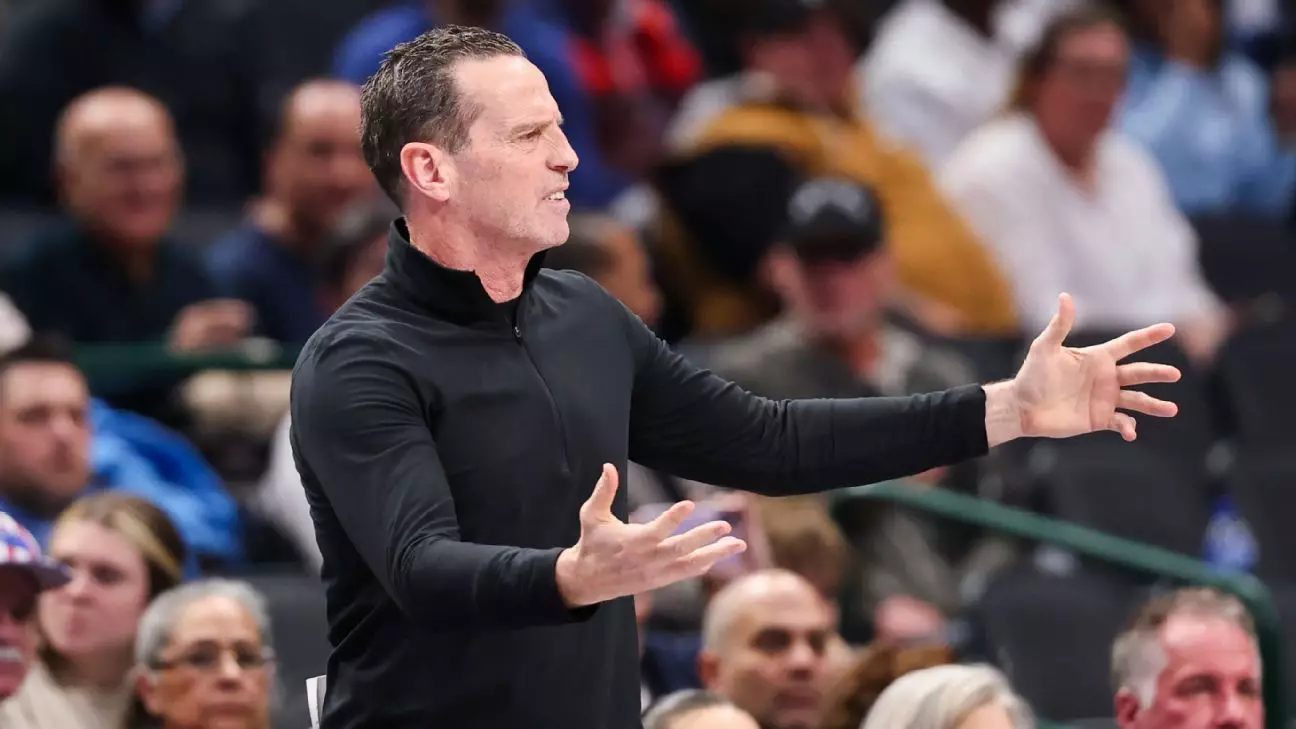In the world of professional sports, every second counts, every decision matters, and the players exist in a realm where the stakes are high. This becomes even more glaring during critical moments in games, particularly in the NBA playoffs—where a single whistle can alter the course of an entire series. In the latest face-off between the Cleveland Cavaliers and the Indiana Pacers, a thrilling game culminated in a narrow victory for Indiana, shadowed by controversy. The tension surrounding the officiating calls, specifically three missed calls in the closing moments, has sparked vehement discussion and criticism surrounding the nature of the game and the responsibilities that come with it.
Haliburton’s Heroics Amidst Controversy
Tyrese Haliburton’s winning three-pointer in the final moments is a moment that could be etched into playoff lore. However, the NBA’s Last Two Minute Report flagged not one, but three significant officiating oversights that not only impacted the score but raise questions about the integrity of the game’s officiating standards. The report revealed that Haliburton technically committed a lane violation moments before his pivotal shot, which would have nullified his ultimate victory-securing effort. While this may sound like mere details to the casual fan, they embody larger issues of accountability—both from the players and from the officials who are tasked with ensuring fair play.
The first issue rests on Haliburton’s feet, which danced over the free throw line during his team’s last-minute offense. But it doesn’t end there; the NBA noted multiple players stepped into the lane during free throws—an infraction often overlooked but essential to maintain game integrity. The feeling among many fans is that clear violations shouldn’t go unpunished, and ignoring them erodes trust in the game.
Atkinson’s Perspective: A Coach’s Dilemma
Cavaliers head coach Kenny Atkinson found himself at the center of this storm, refusing to place complete blame on officiating for the dramatic loss. Instead, he took a measured approach, scrutinizing the entire team’s performance and acknowledging that lapses in execution led to the downfall. “I’d say it was coaching decisions, player decisions, and then referee decisions. And we all made mistakes,” he said, highlighting a level of introspection that is often missing in sports discussions.
Atkinson’s response embodies a philosophy that transcends the individual game; accountability must start from the top down. His declaration that blame should not solely lie with the referees speaks volumes about the pressures coaches and players face to control the narrative while still being realistic about their performance. It underscores an interesting balance where coaches recognize their teams have to do better, even amidst controversial circumstances.
War of Words: Carlisle’s Counterpoint
On the opposing side of the court, Pacers coach Rick Carlisle countered Atkinson’s view by asserting that his team has also felt the harsh bites of officiating. With Pacer players being called for nine more fouls than their Cleveland counterparts, it raises questions about the fairness perceived in these high-stakes fixtures. Carlisle’s adamant refusal to accept the idea that his team received any gifts from referees highlights a competitive spirit that characterizes the league.
These heated exchanges on the sidelines reflect the dichotomy in perspectives that permeate through sports narratives, especially in playoffs. The backdrop of intense competition often leads opposing coaches to embody the role of fierce advocates for their teams, further fueling the drama and the emotional investment of fans.
The Bigger Picture: Balancing Fairness and Emotion
The ongoing dialogue surrounding this game isn’t merely limited to the missteps made on the court. It delves deeper into the emotional and psychological landscape within the league itself, reminiscent of classic playoff rivalries and narratives. Every missed call is an opportunity for a fresh narrative to emerge; one filled with passion, tension, and rivalry.
As both teams prepare for the next game in Indianapolis, the question of how officiating impacts the game will loom large in the minds of players and fans alike. Rather than simply focusing on whether or not calls were missed, the discussion should center around how these moments define the overall spirit of competition and fairness among teams striving for glory on the grand stage. Each playoff story is rich and layered, but at its core, it reflects our collective desire for integrity in sports—a reminder that even amidst controversy, the game is what we ultimately cherish.


Leave a Reply